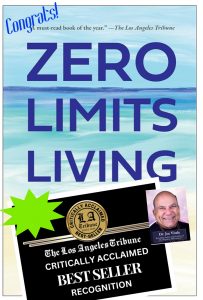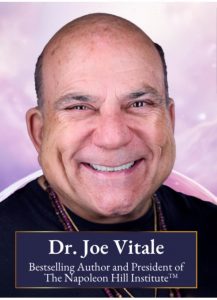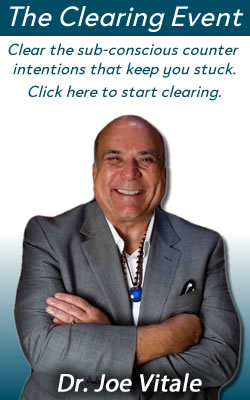I love and hate science.
I love that science continues to try to understand the world at large, and I hate that it is always back pedaling.
I asked ChatGPT how science gets away with this, and to offer examples of when it works, and when it doesn’t.
Here’s the report…
Science: Correcting Itself One Study at a Time
Science is an ever-evolving field. Through rigorous research and experimentation, scientists uncover new insights about the world. However, not every study stands the test of time.
Some findings are later proven wrong, while others continue to hold up under scrutiny.
In this post, we’ll look at five famous scientific studies that turned out to be incorrect, balanced by five that, so far, remain reliable.
5 Studies That Turned Out to Be Incorrect
1. The “Fat is Bad” Study (1950s–1970s)
For decades, fat was labeled as the ultimate dietary villain. A series of studies, led by researcher Ancel Keys, suggested that dietary fat, particularly saturated fat, caused heart disease. This led to a low-fat craze that dominated the food industry. However, recent research has shown that the relationship between fat intake and heart disease is more complex. Healthy fats, like those found in avocados and nuts, are actually beneficial, and sugar and processed carbs may be more harmful than previously thought.
2. Stanford Prison Experiment (1971)
Psychologist Philip Zimbardo’s famous Stanford Prison Experiment suggested that people would quickly conform to abusive behaviors when given authority. The study has been widely criticized for ethical issues, poor methodology, and researcher bias. Participants were often encouraged to act out extreme behaviors, and the results have been difficult to replicate. Today, it’s considered an example of flawed research.
3. Cold Fusion (1989)
In 1989, scientists Stanley Pons and Martin Fleischmann claimed to have achieved cold fusion, a process that would produce unlimited, clean energy at room temperature. The announcement was met with excitement, but soon other researchers failed to replicate the findings. Cold fusion has since been debunked, and it remains a controversial topic.
4. Vaccines Cause Autism (1998)
One of the most damaging incorrect studies was the 1998 paper by Andrew Wakefield that falsely linked the MMR vaccine (measles, mumps, and rubella) to autism. The study was later retracted due to unethical practices and poor methodology, and numerous studies since have found no connection between vaccines and autism. However, the initial report sparked a dangerous anti-vaccine movement.
5. Polygraph Tests as Lie Detectors (1920s–Present)
The polygraph, or lie detector test, has been used for decades to determine whether someone is telling the truth based on physiological responses like heart rate and sweating. However, numerous studies have shown that polygraph tests are unreliable. Stress, fear, and anxiety can produce false positives, and some people can lie without showing physical signs. As a result, polygraphs are not admissible in many courts.
5 Studies That Have Stood the Test of Time (For Now)
1. Theory of General Relativity (1915)
Albert Einstein’s theory of general relativity fundamentally changed our understanding of gravity. It predicts how massive objects like planets and stars warp space-time. This theory has passed many tests over the past century, including the recent detection of gravitational waves in 2015, further proving its accuracy.
2. Double Helix Structure of DNA (1953)
The discovery of the double helix structure of DNA by James Watson and Francis Crick remains one of the most significant breakthroughs in biology. Since its discovery, the structure of DNA has been the foundation for numerous advances in genetics, medicine, and forensic science, and it continues to guide research in the field.
3. Evolution by Natural Selection (1859)
Charles Darwin’s theory of evolution by natural selection explains how species change over time due to environmental pressures. Over 150 years later, the theory remains one of the cornerstones of modern biology. It has been supported by countless studies in fields ranging from paleontology to genetics.
4. Germ Theory of Disease (19th Century)
Proposed by Louis Pasteur and Robert Koch, the germ theory of disease revolutionized medicine. It states that microorganisms are responsible for many diseases. This theory has led to the development of vaccines, antibiotics, and modern hygiene practices, saving countless lives. To this day, it remains a fundamental principle of medical science.
5. Plate Tectonics (1960s)
The theory of plate tectonics explains how the Earth’s outer shell is divided into several plates that move over the mantle, causing earthquakes, volcanic activity, and the formation of mountains. This theory has been supported by evidence from seismology, geology, and oceanography, and it remains the best explanation for many geological processes.
Conclusion
Science is a self-correcting process.
While some studies that were once accepted have been disproven, others have withstood decades of scrutiny and continue to be the foundation of our understanding.
What’s important is that science remains open to new evidence and willing to adapt. Through this process, our knowledge grows stronger and more accurate over time.
All of the above was from ChatGPT.
As I hope you know by now, ChatGPT is known to fabricate case studies, so take the above with a grain of salt.
Again, I love science, but I’m also aware that whatever it reports as fact today can be negated as incorrect tomorrow.
Expect Miracles.
Ao Akua,
Dr Joe







2 Comments
Dr. Joe,
Check this out:
The Science Delusion
https://youtu.be/HybPD0VsFP0
Best Regards,
Matt Russo
Joe Vitale, you’re the first copywriter I’ve ever read.